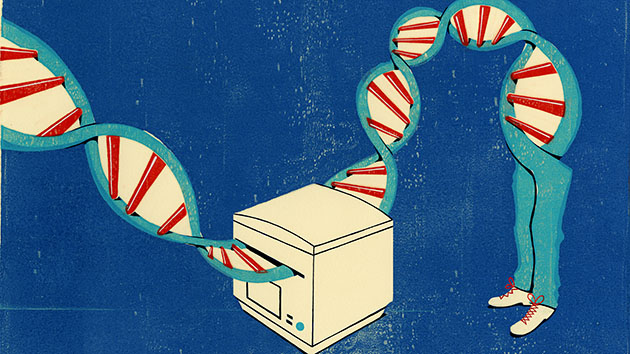The Apollo 11 flew to the moon with an Apollo Guidance computer having a data storage of just 72 kb, but this was nearly 50 years ago. The world’s need for data storage has now, increased exponentially as the data in the world doubles every two years, according to an estimate made by EMC in 2014. The data storage capabilities of the existing technology are continuously being improved whether through disposable paper USB or a 2 TB Kingston USB.
With the increasing demand for data storage, the existing solutions may just not be enough. The researchers are looking for the answer in biology. A DNA molecule is a million times more data-dense than the current data storage technology, and researchers are exploiting it.
Yaniv Erlich and Dina Zielinski, researchers at Columbia University and the New York Genome Centre, have partnered with Twist Bioscience, a California startup to transfer a complete computer operating system, an old movie, a $50 Amazon gift card, a computer virus and so much more into a tiny droplet of DNA. The data storage density which the DNA offers is 215 petabytes. This capacity means the space of single room of DNA can fit the entire information that the humans have ever created to date.
Erlich and Zielinski developed a technique named ‘DNA fountain’ – an algorithm that packs the binary code into data droplets which then, randomly fit them onto the nucleotides C, G, A and T which are the building blocks of DNA. All data droplets are marked with a bar code to help the decoding of the DNA to retrieve the original information. The researchers were able to extract all the information without a single error.
DNA does not only provide dense data storage capabilities, but it also lasts thousands of years keeping all stored information intact. Bonus point? It will never go obsolete like cassettes, floppy disks and CDs did.
We can totally hope for a future filled with DNA storage, but that future is not near. The biggest barrier is the cost of encoding data into synthetic DNA. Creating synthetic DNA with encoding costs $7,000 and an additional $2,000 to retrieve the data from the drop into the original format. It will take perhaps a decade or more before there is a chance of replacing data centers with DNA test tubes.
We would like to know your thoughts on the incredible prospect. Comment below!

